If you’re interested in longevity, there are a few names that you’ve likely come across such as Dr. David Sinclair. Or even Bryan Johnson. Now, here’s another name you should be looking out for: Dave Pascoe.
The biohacker is 61-years-old, but he’s piqued our interest as he’s biologically 38 – and looks every bit of it. So, how does he do it?
Dave Pascoe’s 10-Step Guide to Longevity
“I don’t desire my healthspan to expire before my lifespan. My aim is to make them as equal as possible. My expectation is to live at the very least to the age of 95 in terrific shape … if not well past the age of 110, God willing.” – Dave Pascoe
1. Avoid toxic and unnatural compounds
Oxidative stress is a huge contributor to aging and age-related disorders. If you wish to promote longevity, then you need to combat oxidative stress, which is caused by the imbalance of free radicals and antioxidants in the body.
By adopting a natural approach to life, you can help limit the amount of free radicals in your body. With that, Pascoe works to avoid many things that can generate free radicals in his body, and these include:
- Health, beauty, and cleaning products that contain harmful chemicals, heavy metals, endocrine disrupters, dyes and “fragrances”
- Cookware and food & drink storage containers that contain the same
- Artificial flavorings & colorings
- Emulsifiers
- Preservatives
- Pesticides
- Herbicides
- Anti-caking agents
- Exogenous hormones
- Heavy metals
- Parasites
- microplastics
- industrial seed oils
- transfats
2. Stay active
Research has proven that exercise has anti-aging effects, and that’s why Dave Pascoe has adopted it as an intervention. As it addresses many of the hallmarks of aging,
Pascoe’s fitness routine includes running, walking, hiking, HIIT, as well as yoga and Pilates.
With this fitness plan, Pascoe is able to increase circulation and lymphatic flow, which is great for the removal of cellular waste and it improves heart and lung function. Also, by building and maintaining muscle mass, Pascoe reduces the risk of sarcopenia (age-related muscle loss) and frailty.
3. Follow an omnivore diet
Pascoe follows an omnivorous diet that emphasizes the consumption of fruits, vegetables, and other whole foods.
His breakfast typically features a green banana and chia nut berry bowl with unsweetened almond milk, before later enjoying a lunch that either features Wild Planet sardines, matiz mussels, crown prince oysters, Wild Planet mackerel, or thawed shrimp. The meal is typically accompanied by an avocado, a green apple, a pear, an orange, raw baby carrots, and celery stalks for scooping hummus. There’s also sometimes chicken or beef bone broth.
He then ends the evening by enjoying a dinner featuring either organic and grass-fed meats, and a large pre-made salad or chuck roast or pork ribs with vegetables and herbs. He may also instead opt for grilled meals with Atlantic salmon or grass-fed ground beef, or instant pot chicken breasts with side dishes like sweet potatoes, a variety of mushrooms, or mixed rice.
4. Occasional fasting
Pascoe chooses to occasionally follow a time-restricted eating plan and occasionally fast to address hallmarks of aging, such as mitochondrial dysfunction and cellular senescence.
Research has highlighted the benefits of fasting, which include boosting both health and longevity by repairing cells, combatting inflammation, protecting against oxidative stress and helping to manage chronic diseases like diabetes and heart disease.
5. He takes a plethora of supplements
David Pascoe takes a lot of supplements. Frankly, he takes an almost inhumane number of supplements – over 150 daily. His supplement routine is aimed at improving various areas of his health, be it gut, cognitive or even cardiovascular. With that, I’ve narrowed his comprehensive list down to a few that may benefit you on your anti-aging journey:
i. Alpha-ketoglutarate
A natural compound, Alpha-ketoglutarate works to rebuild and repair muscles.
However, its benefits may go beyond that as research indicates that it may extend lifespan and healthspan in animal models.
ii. Nicotinamide riboside
Taking Nicotinamide riboside can help to raise NAD+ levels.
Why is this important? Well, NAD+ is found in every living cell and is necessary for healthy biological processing, and low levels of NAD+ have been associated with age-related conditions like dementia, cancer, sarcopenia, and accelerated aging.
iii. TAM-818 and TA-65
Pascoe takes these supplements to lengthen telomeres, which are protective caps on the end of chromosomes and their shortening has been associated with cellular aging, which is why telomere attrition is a hallmark of aging.
It should be noted that research on TAM-818 and TA-65 is extremely limited as the studies are either independent or just too small.
iv. Rapamycin
Originally approved by the U.S. Food and Drug Administration (FDA) for cancer treatment, rapamycin is now being studied for its anti-aging benefits.
One study found that rapamycin and its derivatives improved immune and cardiovascular health in individuals with ageing-related diseases.
v. Lithium orotate
Lithium orotate may help regulate mood, and this may be why one study found that therapeutic supplementation of lithium was linked to reduced mortality in individuals diagnosed with affective disorders such as acute mania and bipolar depression.
Aside from mood disorders, lithium may also have the potential to modify cognitive decline in Alzheimer’s patients.
vi. Epigallocatechin gallate green tea extract
Green tea is touted as the ultimate longevity drink, and that’s all thanks to the EGCG (Epigallocatechin gallate) it contains.
An antioxidant compound, EGCG is incredibly effective at protecting cells from oxidative stress.
6. Infrared sauna
Pascoe spends some time in an infrared sauna to help his body remove toxins and interstitial waste build-up.
7. Cold exposure (cold showers and plunges)
I’m not a fan of the cold, or cold showers, but I may have to change that if I want to live longer.
Pascoe is all about embracing the cold as we believe doing so can reduce inflammation, ramp up mitochondrial efficiency and improve immunity. It appears that the cold triggers a biological action that breaks down harmful compounds responsible for age-related diseases.
8. Hyperbaric oxygen therapy (HBOT)
The HBOT treatment features a Hyperbaric Oxygen Chamber, which transports pure oxygen to your body so that it can heal and fight certain infections.
Pascoe undergoes this treatment semi-annually to encourage cellular repair and address hallmarks of aging like genome instability, epigenetic alterations, as well as stem cell exhaustion.
The idea of sitting in a chamber inhaling pure oxygen for longevity may sound strange, but HBOT has been in practice for many years, and research has found that Hyperbaric Oxygen Therapy can reverse biological aging.
9. Plasma donations
As we age, waste products may start to accumulate in our blood, causing damage to the body. Plasmapheresis (or regular blood donations) is Dave Pascoe’s way of removing misfolded, oxidized, and damaged proteins,
“I go through rounds of donations about once every quarter, donating twice-weekly for 4-5 weeks,” he says.
In doing so, he addresses the loss of protein regulation (proteostasis), which has been linked to age-related diseases.
One study found that that repetitive plasmapheresis may reduce markers of senescence and DNA damage in human blood cells, which in turn can reduce biological aging.
10. Eight hours of sleep
Sleep is incredibly important, and not getting enough of it has been linked to many disorders that can risk your longevity.
To combat this, Dave Pascoe makes sure to get eight hours of sleep a night, and he even uses a fitness tracker to track the amount of time he sleeps.
Sleep is the perfect time for the body to repair itself, and those who do get enough sleep enjoy five years more of living than those who don’t.
Should you try Dave’s routine?
Admittedly, there are a few of Pascoe’s tips that have been proven to improve longevity; such as exercising, getting enough sleep, and following a healthy diet.
Yet, before you add 100 supplements to your daily routine or book your next blood donation, speak to your doctor first.
Read More About Longevity’s Biggest Names
Bryan Johnson: He’s Using Stem Cells To Reverse Aging In Joints
David Sinclair: He’s Ranked As One Of The Top Global Longevity Experts
Dr. Jeffrey Gladden: He’s Using Hydrogen to Boost His Longevity
References
Araldi, E., Jutzeler, C. R., & Ristow, M. (2022). Lithium treatment extends human lifespan: Findings from the UK Biobank. Aging (Albany NY), 15(2), 421-440. https://doi.org/10.18632/aging.204476
Biţă, A., Scorei, I. R., Ciocîlteu, M. V., Nicolaescu, O. E., Pîrvu, A. S., Bejenaru, L. E., Rău, G., Bejenaru, C., Radu, A., Neamţu, J., Mogoşanu, G. D., & Benner, S. A. (2023). Nicotinamide Riboside, a Promising Vitamin B3 Derivative for Healthy Aging and Longevity: Current Research and Perspectives. Molecules, 28(16). https://doi.org/10.3390/molecules28166078
Hipp, M. S., Kasturi, P., & Hartl, F. U. (2019). The proteostasis network and its decline in ageing. Nature Reviews Molecular Cell Biology, 20(7), 421-435. https://doi.org/10.1038/s41580-019-0101-y
Lee, D.J.W., Ajla Hodzic Kuerec and Maier, A.B. (2024). Targeting ageing with rapamycin and its derivatives in humans: a systematic review. The Lancet Healthy Longevity, 5(2), pp.e152–e162. doi:https://doi.org/10.1016/s2666-7568(23)00258-1
Lee, H. J., et al. (2023). Cold temperature extends longevity and prevents disease-related protein aggregation through PA28γ-induced proteasomes. Nature Aging. doi.org/10.1038/s43587-023-00383-4.
Li, H., Qian, F., Han, L., Feng, W., Zheng, D., Guo, X., & Zhang, H. (2024). Association of healthy sleep patterns with risk of mortality and life expectancy at age of 30 years: a population-based cohort study. QJM : monthly journal of the Association of Physicians, 117(3), 177–186. https://doi.org/10.1093/qjmed/hcad237
Naeini, S. H., Mavaddatiyan, L., Kalkhoran, Z. R., Taherkhani, S., & Talkhabi, M. (2023). Alpha-ketoglutarate as a potent regulator for lifespan and healthspan: Evidences and perspectives. Experimental Gerontology, 175, 112154. https://doi.org/10.1016/j.exger.2023.112154
Navas, L. E., & Carnero, A. (2021). NAD+ metabolism, stemness, the immune response, and cancer. Signal Transduction and Targeted Therapy, 6(1), 1-20. https://doi.org/10.1038/s41392-020-00354-w
Shim, S.S., Berglund, K. and Yu, S.P. (2023). Lithium: An Old Drug for New Therapeutic Strategy for Alzheimer’s Disease and Related Dementia. Neurodegenerative Diseases, [online] 23(1-2), pp.1–12. doi:https://doi.org/10.1159/000533797.




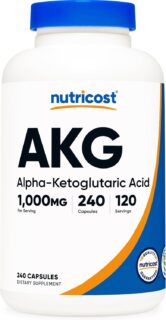
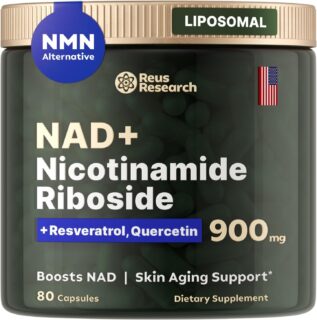
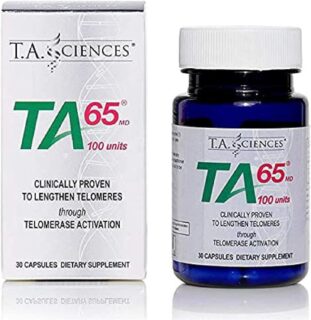
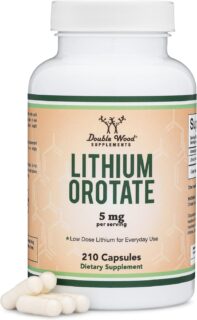
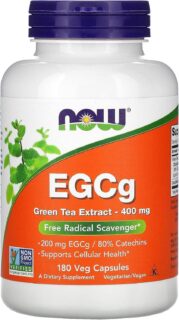
![women [longevity live]](https://longevitylive.com/wp-content/uploads/2020/01/photo-of-women-walking-down-the-street-1116984-100x100.jpg)










